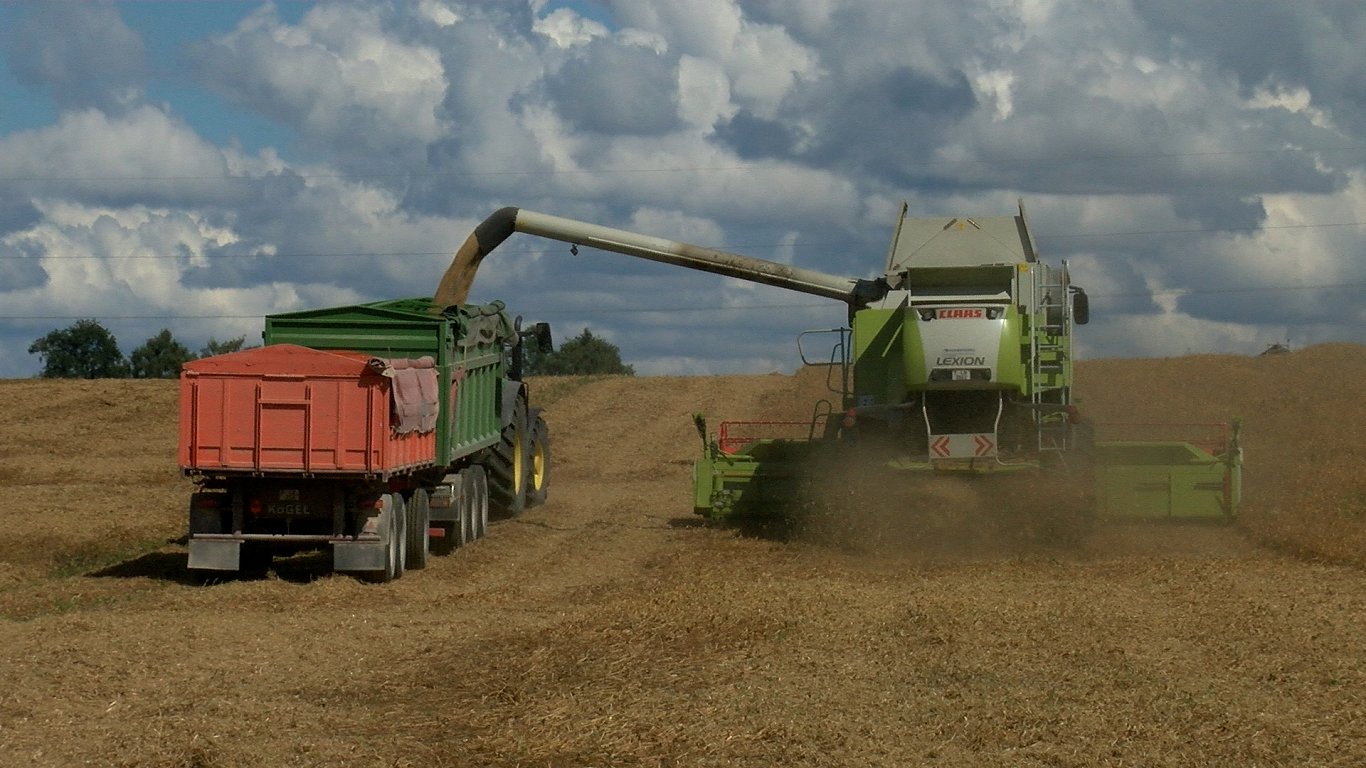On the farm “Rožkalni” in Smiltene municipality, today, peas are harvested from the 20-hectare land. The owner Ivars Ādamsons said that the farm would yet see whether peas, rye, or wheat would bring more benefit this year. It depends on the prices of the buyer.
Cereals are grown on the “Rožkalni” farm in an area of around 800 hectares. Yields are good this year. If in Zemgale the cereals are in the water, Vidzeme has only a few fields slightly affected.
Ādamsons said that this year was a turbulent year for farmers, but the next season promises to be an even bigger challenge mainly because of high fertilizer prices.
“We look at how to match, maybe individually potassium, some phosphorus, nitrogen, to divide something, out of what the field needs. If we now invest in very expensive manure and expensive seed... Pray to God for the end of the war so that the market returned to normal and prices start to fall down,” the farmer said.
Farmer Vilnis Sleņģis from Bilska parish, owner of the farm “Sloka”, also said he had no idea how the next year would turn out. This year, good wheat yields have been harvested, but protein levels in the grain are quite low. That can affect the price of the grain.
“It looks more hopeful for the time being because the prices were huge, so there was a fear that everything could be different this year. It's a game of luck because it can't be predicted, bad harvests, rains or heats can happen as well next year, and all this can go down the drain,” said Sleņģis.
Farmer's co-op VAKS board chairman Indulis Jansons said that protein levels in grain are likely to be lower because farmers were saving fertilizer due to high prices in the spring. The cooperative has been able to supply fertilizers from Lithuania, Poland and the Netherlands this summer.
“There are also products of very poor quality, with very little content [..]. Caution, that is what we are calling for. Calculate, watch, provide and not try to pick up some unknown peak, but look at the costs so you can earn back,” Jansons said.
Currently, the price of wheat on the stock exchange fluctuates at around €320 per tonne, with the price above €400 in May. Forecasts for the time being show that prices for grain are likely to fall further. Consequently, the rise in food prices should also slow down.





























